NH lacks formal citizenship classes, leaving the job up to volunteers
| Published: 04-03-2023 4:56 AM |
With two maps of the United States, a flag in the corner and photos of past U.S. presidents pinned to a foldout whiteboard, an office at Overcomers Refugee Services resembles that of a high school history classroom. Instead of high school kids, Eileen Kane — equipped with a three ring binder of spelling words, dates and questions — teaches new Americans, who studying for their citizenship test.
As the population of New Americans continues to grow in the Concord area, residents like Kayitani Ndutiye, who moved to New Hampshire from the Congo in 2012, are eager to cement the United States as their new home. Often, the 100 question naturalization test, with questions of history and geography, stand in their way.
Not to mention that for most of these immigrants, English is not their first language. Yet, there are no formal citizenship classes in the area with paid, full-time staff members, which leaves the job up to volunteer teachers who wear multiple hats in pursuit of helping New Americans pass the test.
From kindergarten to Grade 12, students across New Hampshire start school with their A,B,C’s and typically take a United States history course in high school — filled with details about our three branches of government, the Bill of Rights, historic elections and pivotal periods for the country.
It’s hard to condense what a student might learn in over a decade of school in these history classes, let alone basic reading and spelling skills, into just a few months.
But across 13 lesson plans, that’s what Kane does for her citizenship students.
If a student is proficient in English, they are put on track to do a lesson a week to pass the test. Often, it’s two or three weeks per lesson — with English lessons sprinkled into explanations of colonialism and the Federalist Papers.
Article continues after...
Yesterday's Most Read Articles
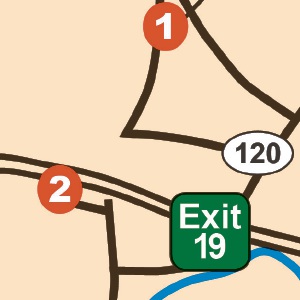 Lebanon moves forward with plans for employee housing
Lebanon moves forward with plans for employee housing
 At Dartmouth, hundreds protest ongoing war in Gaza and express support for academic freedom
At Dartmouth, hundreds protest ongoing war in Gaza and express support for academic freedom
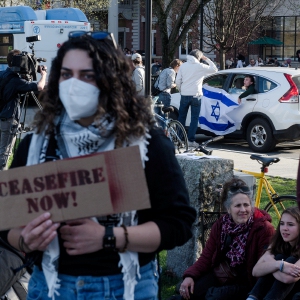 Police break up protest at Dartmouth College, 90 arrested
Police break up protest at Dartmouth College, 90 arrested
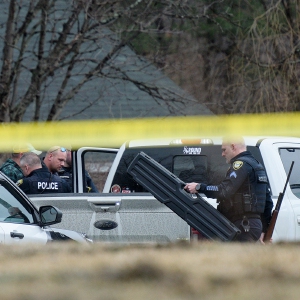 Man tied to Lebanon school lockdowns pleads not guilty to charges
Man tied to Lebanon school lockdowns pleads not guilty to charges
When Ndutiye first began working with Kane in August, each lesson started with a review of the basics.
“Do you know how to spell United States?” she’d ask, elongating the sound of each letter to piece together U-N-I-T-E-D.
Now, he’s on the eighth installment of Kane’s lesson plans. He’s quick to answer who the governor of New Hampshire is (Chris Sununu) and knows which Founding Father wrote the Declaration of Independence (Thomas Jefferson).
But these intricate lesson plans and centuries of condensed history highlight how complex the naturalization process is for aspiring citizens, especially when they are still learning English.
“For them to take the test, 100 questions on civics. These are people who never went to school. And America knows that all the people that they bring here to the U.S. didn’t have a chance to go to school,” said Clement Kigugu, the executive director of Overcomers. “So how can you expect them to learn English and be able to respond to 100 questions?”
Not to mention that some questions, like “Who is the Speaker of the House?” already have new answers. Forget the fact that Ndutiye just learned about a woman named Nancy Pelosi. Now, he’ll have to answer Kevin McCarthy.
In the past decade, Ndutiye has already taken the citizenship test twice.
Now with Kane’s help, he has flash cards and lesson plans — and a weekly commitment to practicing his English and simulating questions that might be on the test. But with no formal citizenship class for new Americans in the area, aside from the commitment of volunteers like Kane, many of these resources aren’t available to everyone who needs them.
From 2010 to 2021, there were 1,187 new Americans who settled in Concord, more than anywhere else in the state, according to the N.H. Department of Health and Human Services.
With the help of Ascentria Care Alliance, a resettlement agency in the area, thousands individuals have relocated to New Hampshire since 1997. The agency places new Americans in Concord, Laconia, N.H., and Nashua, offering employment and housing assistance, English classes and one-on-one support from volunteers.
The Overcomers Refugee Services, a Concord nonprofit, also has a similar mission — to support new Americans as they build a life in New Hampshire.
When many new Americans arrive in New Hampshire, they are looking to make a permanent home for themselves, said Kigugu. He wanted to do the same thing when he came to the United States from Rwanda in 2006.
For many, becoming citizen is a monumental process — one in which they become legally accepted by their new home, but also granted rights that few new Americans had prior, especially if their path to the United States involved refugee camps or war-torn countries. After five years, those over the age of 18 can apply for the naturalization process.
Yet when searching for a citizenship preparation class near Concord on the U.S. Citizenship and Immigration Services website, the closest result is the Greater Lawrence Community Action Council, Inc., 40 miles away, in Massachusetts.
To Kigugu’s knowledge, in the Concord-area there is no full-time program that supports citizenship class preparation with paid employees. Instead, new Americans are dependent on the help of volunteers, who run these classes on their own schedule.
When a new American contacts Overcomers about studying for the naturalization test, Kigugu tries to match them with a volunteer teacher. But often varying levels of English mean these classes work better one on one – and require piecing together a scheduling puzzle of availability against work hours and childcare responsibilities.
“The hard part is, we have to match them. So sometimes the volunteer has time during the day when the client works,” he said.
Kane, who is a retired occupational therapist, recently began volunteering with test preparation classes. To figure out where to start with the test, she bought workbooks, studying them to decide how she would organize the material herself.
“I looked through them and said ‘how do they teach? What do they teach?’ and then I made my own lessons,” she said. “I started from scratch.”
When Ndutiye first began studying with Kane at Overcomers, he hoped he and his wife could prepare for the naturalization test together. On day one, they sat together in the office as Kane explained why the flag had 13 stripes and 50 stars, asking them to repeat what each of these numbers symbolized.
While Kane could help fill in the gaps for Ndutiye by translating words to Swahili to learn the material, his wife needed to start with basic English classes.
This meant Ndutiye has studied one-on-one with Kane most weeks over the last few months.
As he waits for his naturalization test, Adam Hassan, who is from Sudan but arrived in New Hampshire by way of Egypt, has joined in on Ndutiye’s sessions. Hassan will review while Ndutiye works through the lesson plans. One after the other, they’ll take turns answering Kane’s revolving questions — Name one thing Martin Luther King Jr. is famous for (the Civil Rights Movement); What war was Eisenhower a general in (World War II); How many Amendments are there in the U.S. Constitution (27).
If Overcomers had an employee responsible for test preparation, Kigugu envisions that individual working both a morning and evening shift, around other work schedules. Or the organization would offer Saturday classes for more flexibility.
“If we had a paid person, the person could be available all week and cover the needs of everyone,” he said.
But for now he’s only able to help the number of people Kane can take on in her schedule. If someone passes, or has to cancel, that’s a new spot for another student. Still, demand exceeds what Overcomers is able to currently accommodate.
When the classes produce a successful result and a student becomes a citizen, it’s a moment to celebrate for everyone involved.
Kigugu remembers in 2016, he accompanied an elderly man who recently earned his citizenship to vote in the Presidential election. The emotion, of watching this man vote for the first time was emblematic of a larger message beyond candidates on a ballot.
“Now I belong to this country. Now I am a citizen of a country, after being in a refugee camp for 20 years, without having the right to vote,” said Kigugu.

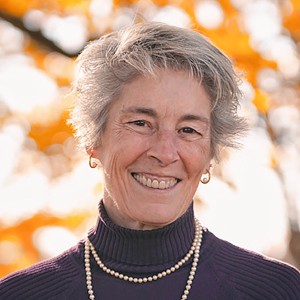 Colby-Sawyer names interim president
Colby-Sawyer names interim president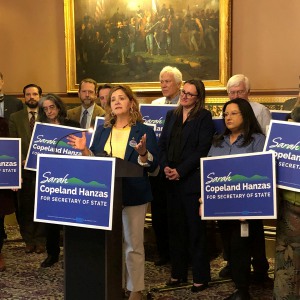 Sarah Copeland Hanzas launches bid for second term as secretary of state
Sarah Copeland Hanzas launches bid for second term as secretary of state
